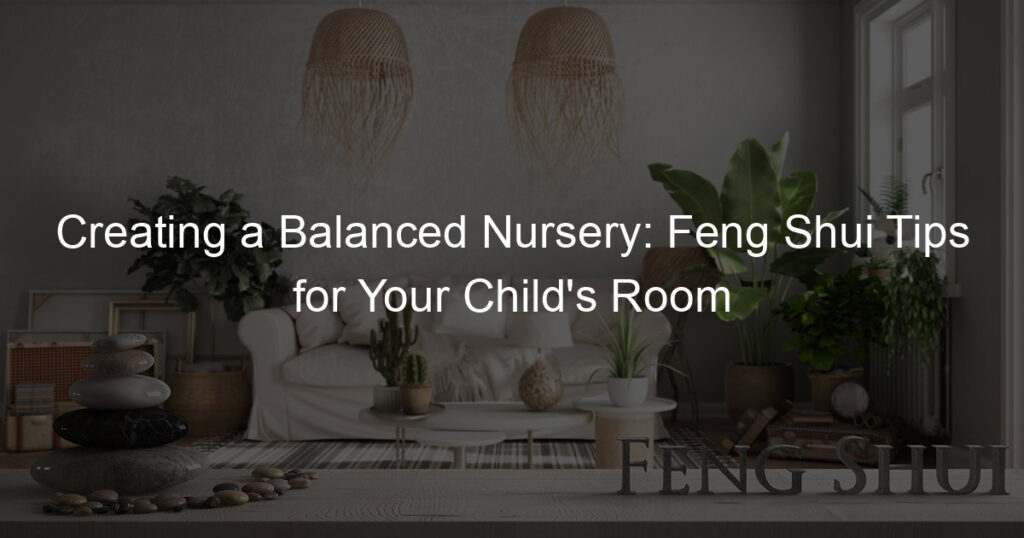
Introduction to Feng Shui and Windows
Welcome to our comprehensive guide on Feng Shui and the significant role windows play in it. This ancient Chinese practice is all about creating harmony between individuals and their surroundings. Let’s delve into the basics of Feng Shui, understand the importance of windows, and learn how they influence the energy flow.
- Understanding the basics of Feng Shui
- The importance of windows in Feng Shui
- How windows influence Feng Shui energy flow
Feng Shui, which translates to ‘Wind’ and ‘Water,’ is an age-old Chinese practice that believes in the flow of energy, known as ‘Chi.’ It’s all about arranging your surroundings in a way that promotes positivity and harmony. The placement of objects, colors used, and the direction everything faces, all play a crucial role in Feng Shui.
Windows are like the eyes of a home in Feng Shui. They are the primary source of natural light and air, both of which are essential for a healthy living environment. Properly placed and well-maintained windows can bring in positive energy, while poorly placed or neglected windows can lead to the opposite.
In Feng Shui, windows represent the voice of the adults in the house and the flow of communication. They also control how energy enters and leaves your home. A well-placed window can bring in a steady flow of positive energy, while a poorly placed one can cause energy to rush out, leading to a sense of imbalance and unease.
Now that we’ve covered the basics, let’s dive deeper into the world of Feng Shui and windows. We’ll explore how to position windows, use them effectively, and design them for optimal energy flow. So, stay tuned!
Feng Shui Window Positioning
When it comes to Feng Shui, the positioning of windows plays a vital role in balancing the energy in your living or working space. Let’s explore the basic principles of positioning windows for Feng Shui.
Basic Principles of Positioning Windows for Feng Shui
There are three key factors to consider when positioning windows for Feng Shui: direction and orientation, size and shape, and color and material. Each of these factors contributes to the overall energy flow and balance in a room.
- Direction and Orientation
- Size and Shape
- Color and Material
The direction and orientation of your windows can greatly influence the energy flow in your space. In Feng Shui, it is believed that windows facing East invite positive energy, as the East is associated with the rising sun and new beginnings. On the other hand, windows facing West can bring in more intense energy, as the West is associated with the setting sun and endings. Therefore, it’s important to consider the direction and orientation of your windows to ensure a balanced energy flow.
The size and shape of your windows also play a crucial role in Feng Shui. Large windows can let in more natural light and energy, while smaller windows may limit the amount of energy entering your space. The shape of your windows can also influence the energy flow. For instance, round windows are associated with the metal element in Feng Shui, which symbolizes clarity and preciseness. On the other hand, square or rectangular windows are associated with the earth element, symbolizing stability and grounding.
The color and material of your windows can also affect the energy in your space. In Feng Shui, different colors are associated with different elements and energies. For example, blue and black are associated with the water element, symbolizing wisdom and calmness, while red and pink are associated with the fire element, symbolizing passion and energy. The material of your windows can also influence the energy. For instance, wooden windows are associated with the wood element, symbolizing growth and vitality, while metal windows are associated with the metal element, symbolizing clarity and preciseness.
By considering these basic principles of Feng Shui window positioning, you can create a more harmonious and balanced energy in your space.
Advanced Techniques in Feng Shui Window Positioning
After understanding the basic principles of Feng Shui window positioning, we can now delve into some advanced techniques. These methods will help you further enhance the energy flow in your space, maximize natural light, and control energy flow with window treatments.
- Using Mirrors to Enhance Energy Flow
- Positioning Windows to Maximize Natural Light
- Using Window Treatments to Control Energy Flow
Mirrors play a significant role in Feng Shui as they are believed to reflect and multiply positive energy. When positioned correctly, mirrors can help to enhance the energy flow through your windows. Place a mirror opposite the window to reflect the natural light and scenery. This technique not only brightens up the room but also brings the calming energy of nature into your space.
Windows are the eyes of a home and are crucial for allowing natural light in. In Feng Shui, the more natural light, the better. To maximize natural light, position your windows in a direction where they can capture the most sunlight throughout the day. For instance, east-facing windows capture the morning sun, while west-facing ones get the afternoon light. Remember, a well-lit room is synonymous with a healthy and positive energy flow.
Window treatments like curtains, blinds, and shades can significantly influence the energy flow in your room. In Feng Shui, it’s essential to maintain a balance. Heavy, dark-colored curtains can block too much light and energy, while no curtains at all might lead to excessive energy flow. Choose light, airy curtains that allow natural light in but also provide privacy when needed. The color of your window treatments also matters. Light colors are generally recommended as they promote a calm and peaceful energy.
In conclusion, advanced Feng Shui window positioning techniques involve the strategic use of mirrors, careful window positioning, and thoughtful window treatments. By implementing these techniques, you can create a space that not only looks good but also feels good, filled with positive energy and natural light.
Using Windows in Feng Shui
In the world of Feng Shui, windows play a significant role in promoting positive energy flow. They are considered the eyes of a home, providing a view to the outside world and allowing natural light to enter. Let’s delve into how we can use windows to enhance positive energy flow in our homes.
Window Use for Positive Energy Flow
There are several ways to use windows to promote positive energy flow in your home. Here are some key strategies:
- Keeping windows clean and clear: Clean windows are essential in Feng Shui. They let in more light, which is a source of positive energy. A clean window also provides a clear view of the outside world, which can help to reduce stress and promote a sense of calm. Make it a habit to clean your windows regularly to ensure they remain clear and bright.
- Using plants and other natural elements: Plants are a great way to enhance the positive energy flow from your windows. They not only add a touch of nature to your home but also help to filter the air and create a more relaxing environment. Consider placing plants like bamboo or peace lilies near your windows. Other natural elements, such as stones or shells, can also be used to enhance the positive energy flow.
- Utilizing window views for positive energy: The view from your window can greatly influence the energy in your home. A pleasant view of nature or a beautiful cityscape can bring in positive energy. If your view is less than ideal, consider using window treatments or decals to improve it. Remember, the goal is to create a view that brings you joy and peace.
By implementing these strategies, you can use your windows to enhance the positive energy flow in your home. Remember, Feng Shui is all about creating a harmonious environment, and your windows play a crucial role in this process.
Window Use for Blocking Negative Energy
In Feng Shui, windows are not just for letting in light and air. They also play a crucial role in blocking negative energy. Here are three effective ways to use your windows for this purpose:
- Using Window Coverings Effectively
Window coverings, such as curtains, blinds, or shades, can be a powerful tool in blocking negative energy. They serve as a barrier between your home and the outside world, keeping out unwanted influences. It’s important to choose coverings that are easy to open and close, as this allows you to control the flow of energy. Dark, heavy curtains can help block out negative energy, especially at night. During the day, opening the curtains lets in positive energy.
- Positioning Furniture to Block Negative Energy
The placement of furniture can also affect the energy in your home. For instance, a couch or bed should never be directly in line with a window, as this allows negative energy to flow directly onto you. Instead, position your furniture so that it’s either perpendicular to the window or facing it at an angle. This helps to deflect negative energy away.
- Using Crystals and Other Feng Shui Tools
Crystals are a popular Feng Shui tool for blocking negative energy. They can be placed in windows to absorb and neutralize negative energy before it enters your home. Some of the best crystals for this purpose include black tourmaline, hematite, and smoky quartz. Other Feng Shui tools, such as wind chimes or mirrors, can also be used to redirect negative energy away from your home.
In conclusion, windows play a significant role in Feng Shui. By using window coverings effectively, positioning your furniture correctly, and utilizing crystals and other Feng Shui tools, you can help block negative energy and create a more harmonious living environment.
| Method | How it Blocks Negative Energy |
|---|---|
| Window Coverings | Acts as a barrier between your home and the outside world |
| Furniture Positioning | Deflects negative energy away from you |
| Crystals and Feng Shui Tools | Absorbs and neutralizes negative energy before it enters your home |
Feng Shui Window Placement
One of the key aspects of Feng Shui is the placement of windows in your home or office. The right window placement can enhance the flow of positive energy, or Qi, and create a harmonious environment. Let’s delve into the principles of Feng Shui window placement.
Principles of Feng Shui Window Placement
Understanding the principles of Feng Shui window placement can help you create a space that is both aesthetically pleasing and energetically balanced. Here are some key principles:
- Understanding the Bagua map: The Bagua map is a fundamental tool in Feng Shui. It divides your space into nine areas, each representing a different aspect of life. By understanding the Bagua map, you can determine the best places for your windows to enhance the energy in each area.
- Placement for different types of rooms: The type of room also influences window placement. For instance, in a bedroom, windows should ideally be placed opposite the bed to allow for a balanced energy flow. In a home office, windows should be placed where they can provide ample natural light without causing glare on your workspace.
- Window placement for different directions: The direction your window faces also matters in Feng Shui. East-facing windows invite the morning sun and are ideal for spaces where you want to promote new beginnings and growth. West-facing windows, on the other hand, are perfect for spaces where you want to foster relaxation and introspection.
By following these principles, you can harness the power of Feng Shui to create a positive and harmonious environment in your home or office.
Case Studies on Feng Shui Window Placement
-
Successful Feng Shui Window Placement in a Home
Let’s take a look at a case where Feng Shui principles were successfully applied in a home. The homeowner, Mrs. Lee, was struggling with a lack of energy and motivation. After consulting with a Feng Shui expert, she decided to rearrange her windows according to the Bagua map. The windows in her living room were placed in the east to invite health and family harmony, while those in her office were placed in the south to encourage fame and reputation. After making these changes, Mrs. Lee reported feeling more energetic and motivated. Her family also noticed a more harmonious atmosphere at home.
-
Challenges and Solutions in Feng Shui Window Placement in an Office
In an office setting, Feng Shui window placement can be a bit more challenging due to structural limitations. In one case, a small business owner, Mr. Smith, wanted to improve the energy flow in his office. However, his office building had fixed windows that couldn’t be moved. The solution was to use mirrors and plants to redirect the energy flow. Mirrors were placed strategically to reflect the light from the windows, and plants were used to absorb negative energy. As a result, Mr. Smith and his employees reported a more positive and productive work environment.
-
Impact of Feng Shui Window Placement on Energy Flow
The placement of windows in a home or office can significantly impact the energy flow. A case study involving a large family home demonstrated this. The house initially had a poor energy flow due to the incorrect placement of windows. After consulting with a Feng Shui expert, the windows were repositioned according to the Bagua map. The family reported a noticeable improvement in the home’s energy flow, leading to better relationships and improved health. This case study shows the potential impact of Feng Shui window placement on energy flow.
Feng Shui Window Design
When it comes to Feng Shui, the design of your windows plays a significant role. It’s not just about where they are placed, but also how they are designed. Let’s delve into how to choose the right window design for Feng Shui.
Choosing the Right Window Design for Feng Shui
There are several factors to consider when choosing a window design for Feng Shui. These include the type of window, the color, and the material used. Let’s explore each of these in detail.
- Types of windows and their Feng Shui implications
There are various types of windows, each with its own Feng Shui implications. For instance, large windows can bring in more natural light and positive energy, while smaller windows may limit this energy flow. However, it’s crucial to balance the size and number of windows to avoid excessive energy flow, which can be disruptive.
- Choosing window colors for Feng Shui
The color of your windows can also impact the Feng Shui of your space. Light colors like white and beige can promote peace and tranquility, while darker colors like black and brown can ground and stabilize the energy. However, it’s essential to choose colors that harmonize with the overall color scheme of your room.
- Window materials and Feng Shui
The material of your windows is another important consideration. Wood, for instance, is a natural material that promotes growth and vitality. Metal, on the other hand, can enhance clarity and precision. Glass, being transparent, can encourage openness and communication. It’s important to choose a material that supports your specific Feng Shui goals.
In conclusion, the design of your windows can significantly impact the Feng Shui of your space. By considering the type, color, and material of your windows, you can create a harmonious and balanced environment.
Examples of Feng Shui Window Designs
There are various ways to incorporate Feng Shui principles into your window design. Here, we will explore three main categories: traditional, modern, and innovative Feng Shui window designs.
- Traditional Feng Shui Window Designs
- Modern Feng Shui Window Designs
- Innovative Feng Shui Window Designs
Traditional Feng Shui window designs often focus on balance and harmony. They typically feature symmetrical shapes and are often made from natural materials like wood. For instance, a popular traditional design is the “Moon Gate” window, a circular window that symbolizes the cycle of life and the balance between yin and yang.
Modern Feng Shui window designs are more flexible and adaptable. They often incorporate clean lines, minimalistic styles, and a mix of natural and synthetic materials. A common modern design is the large, floor-to-ceiling window that allows for maximum natural light and a clear view of the outdoors, promoting a sense of openness and connection with nature.
Innovative Feng Shui window designs push the boundaries of traditional and modern styles. They might feature unique shapes, dynamic arrangements, or cutting-edge materials. For example, some innovative designs use smart glass that can change transparency depending on the time of day, allowing for optimal light control and privacy while still maintaining a connection with the outside world.
Regardless of the style you choose, remember that the key to Feng Shui window design is to create a balance between the indoor and outdoor environments, promote a flow of positive energy, and create a harmonious and comfortable living space.
Conclusion: Key Takeaways on Feng Shui Window Use and Placement
As we wrap up our discussion on Feng Shui and windows, it’s important to revisit the key points we’ve covered. These insights will help you understand the significance of windows in Feng Shui and how you can use them to enhance the flow of positive energy in your space.
- Importance of windows in Feng Shui
- Principles of Feng Shui window positioning and placement
- Practical tips for using windows in Feng Shui
Windows in Feng Shui are considered as the eyes of a home. They play a crucial role in regulating the flow of Chi, or life energy, in and out of your space. A well-placed window can bring in positive energy, while a poorly placed one can lead to energy loss. Therefore, understanding the importance of windows in Feng Shui is key to creating a harmonious environment.
The principles of Feng Shui window positioning and placement revolve around balance and harmony. Windows should be placed in a way that they allow natural light to enter, but not so much that it overwhelms the space. They should also be in good condition, clean, and unobstructed to allow free flow of energy. The size of the windows should be proportionate to the size of the room to maintain balance.
There are several practical tips for using windows in Feng Shui. These include keeping windows clean and clear of obstructions, using window treatments to control the amount of light entering the space, and ensuring that windows are in good repair. Additionally, the use of plants near windows can help to enhance the flow of positive energy.
In conclusion, windows play a significant role in Feng Shui. By understanding their importance and applying the principles of window positioning and placement, you can create a space that is balanced, harmonious, and filled with positive energy. Remember, the goal of Feng Shui is not just about aesthetics, but about creating a space that supports your well-being and happiness.














